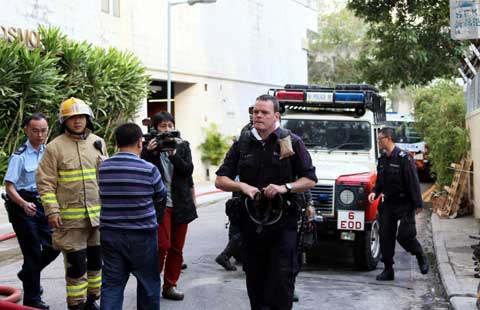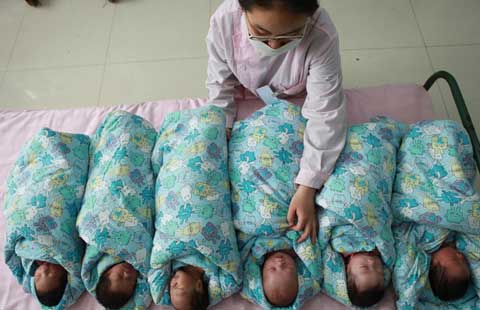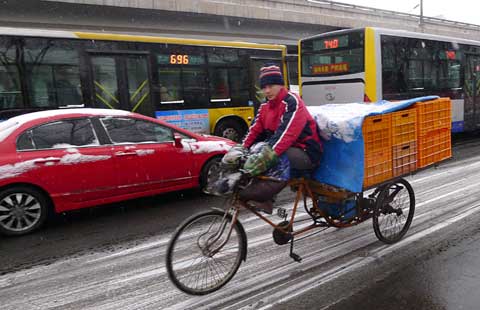Thai political crisis threatens budget, rice scheme
Updated: 2014-02-07 15:24
(Agencies)
|
||||||||
 |
|
Anti-government protesters hold Thai baht banknotes ready to donate to their leader marching in downtown Bangkok February 7, 2014. [Photo/Agencies] |
GROWTH FORECAST SLASHED
Many government ministries have been closed for weeks because of the protests, with civil servants working from home or back-up facilities. Many from the Commerce Ministry, for example, have relocated to a royal arts and craft centre north of Bangkok and on Monday officials held the monthly inflation briefing in a restaurant.
As protest numbers dwindled this week, some ministries have tentatively reopened. But policymaking remains restricted.
Brokerage Thanachart Securities has slashed its economic growth forecast for 2014 to 2.0 percent from 3.2 percent because of the likely fall in government spending, as well as delays to both public and private investment.
"Our expectation of a reduction in populist spending, especially on the massive rice scheme, forces us to lower our consumption growth assumption this year from flat growth to negative growth of 1.2 percent," said its head of research, Pimpaka Nichgaroon, noting that consumption in Thailand accounts for around half of GDP.
A centrepiece of the government's economic policy - set to increase growth by one percentage point in a full year, it said - was a 2 trillion baht ($61 billion) infrastructure programme focused on mass transit and high-speed rail networks.
Ministers approved related borrowing in March 2013 but it was contested by the parliamentary opposition because it was off-budget and the case has been mired in the courts. It now seems unlikely the work will begin any time this year.
State-owned Electricity Generating Authority of Thailand (EGAT), the country's largest power producer and operator of the national grid, said this week a $515 million infrastructure fund might be delayed if a new government was not formed soon. It needs the money for new power plants and transmission lines.
A planned power station in southern Krabi province must await approval from the next government.
Public investment and infrastructure account for about 30 percent of total cement demand, so big suppliers are concerned.
"If the government is unable to approve new infrastructure projects, new public spending will not happen. That will drag down the overall sector," said Kan Trakulhoon, chief executive of Siam Cement Pcl.
Most Viewed
Editor's Picks

|

|

|

|

|

|
Today's Top News
Senate confirms Baucus as ambassador to China
History supports maritime claims
Japan to extend 'territorial education'
Shanghai kindergartens to promote local dialect
Pollution fears dampen fireworks sale
Car sharing catching on since ban was lifted
Beijing reports second human H7N9 case
More Chinese enjoy festival overseas
US Weekly

|

|











